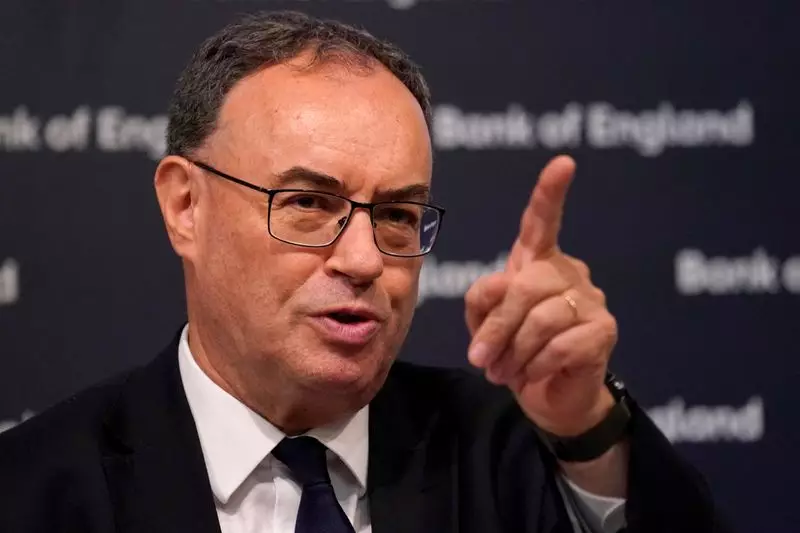In light of recent developments regarding inflation and geopolitical tensions, the Bank of England (BoE) finds itself at a pivotal juncture in its monetary policy strategy. The current benchmark interest rate is set at 5%, following a notable reduction earlier this August — the first such decrease in four years. While the central bank held rates steady in its most recent meeting, market analysts are already anticipating a potential quarter-point cut in November. This anticipation stems from Governor Andrew Bailey’s recent comments which suggest that the BoE might be inclined to adopt a more proactive stance if inflation data continues to show positive trends.
Bailey expressed cautious optimism regarding the inflation landscape in the UK, noting that inflationary pressures appear to be less persistent than previously feared. This news is pivotal, as it provides room for the BoE to consider adjustments to its interest rate policy. Lowering interest rates typically aims to stimulate economic growth by encouraging borrowing and investment; however, the timing and extent of such cuts are crucial. The optimism surrounding inflation must be balanced against the risk factors that could derail economic stability, particularly those stemming from global events.
A significant wildcard in the economic forecasting equation is the ongoing conflict in the Middle East. Governor Bailey highlighted the possible repercussions of this instability on oil prices, indicating that geopolitical tensions could push prices higher. Oil markets have always been sensitive to such conflicts, and any significant disruption could ripple through the global economy, affecting inflation rates and consumer prices in unexpected ways. The BoE must weigh these risks as it contemplates future interest rate movements, understanding that excessive volatility in oil prices can stifle the economic progress that lower rates are meant to support.
Bailey also referenced the importance of market stability amid these turbulent times. He acknowledged the intricate balance the BoE must maintain while tackling immediate economic challenges and sustaining broader market trust. While there appears to be a concerted effort to keep oil markets stable, Bailey cautioned that there exists a tipping point that could lead to a breakdown in this control should the geopolitical situation escalate.
The BoE’s decisions will not occur in a vacuum; they are intricately connected to international events and conditions. Policymakers are faced with the dual challenge of managing domestic economic aspirations while remaining vigilant of external pressures that may compromise stability and growth.
The outlook for the Bank of England in the near term is dominated by the need for a careful balancing act. With interest rate cuts potentially on the horizon, the BoE must navigate the complexities of inflation trends, geopolitical conflicts, and market stability. As Bailey has indicated, the central bank’s responsiveness to both domestic and international factors will be crucial in shaping the UK’s economic trajectory. The next few months will undoubtedly involve strategic decision-making that reflects both the volatility of the global landscape and the underlying health of the UK economy.

